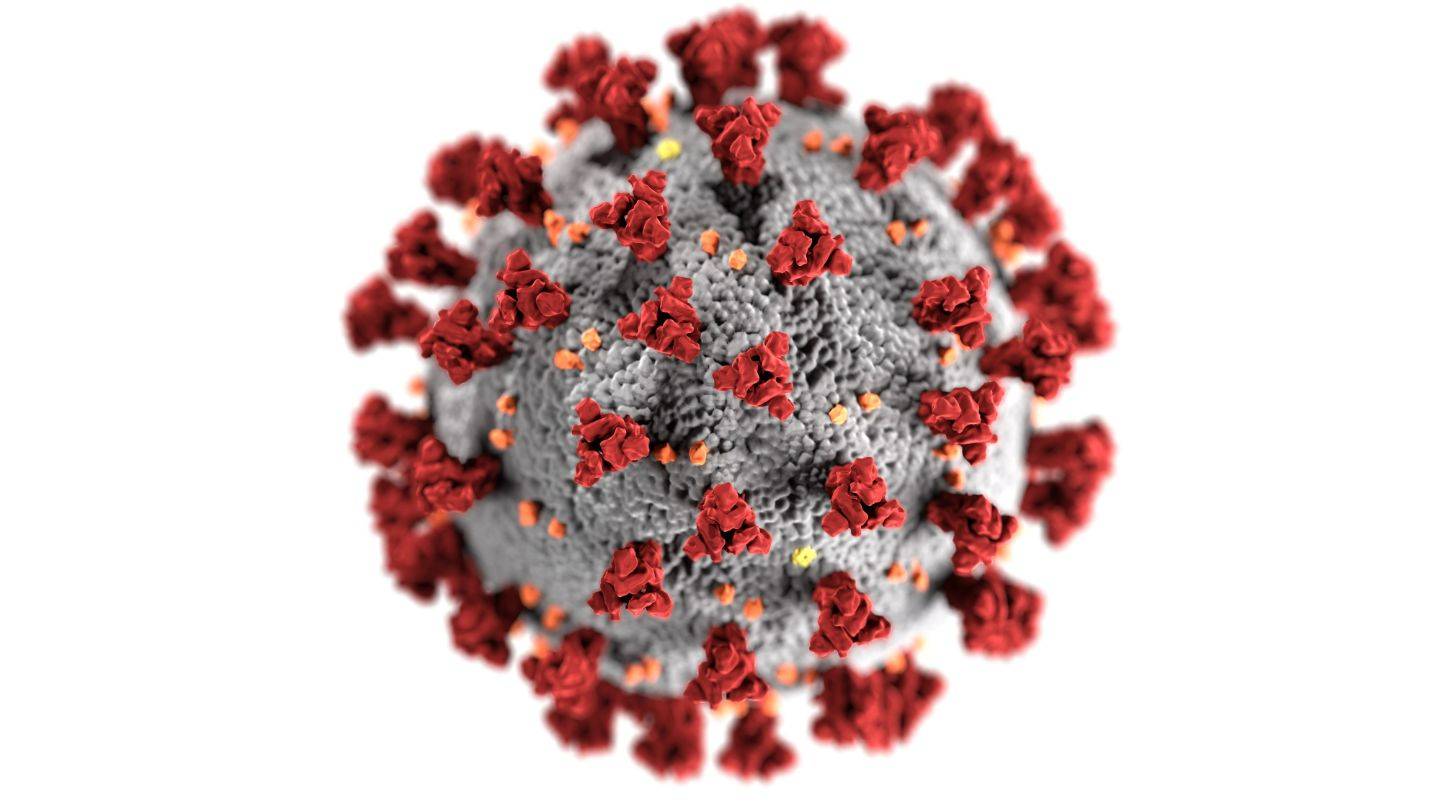
This era of humanity is led by money and power; when the whole world was running behind building their empire of money shedding trees, a novel strain of coronavirus changed the outlook entirely and brought the entire global economy to their knees. The reason behind the same was the uncertainty about how the characteristics of the virus will change as it is a NOVEL virus, and the only effective way is to avoid the infection with social distancing. It ended up in closure of all the factories, workplaces, schools, colleges, financial markets, and whatnot.
It transformed the hustle and bustle in the global economy into tranquility. From the fruit seller to the most profitable crude oil trade, everyone just faced the worst unexpected steep fall in their own business. People who were feeling pity about Chinese people because of COVID-19 in January started blaming the same for the same reason later. Bearing in mind, the U.S. – China trade war and U.S. presidential elections and Brexit, the IMF has predicted global growth of 3.4 percent.
Global stock markets erased about US$6 trillion in wealth in one week from 24th to 28th of February. The S&P 500 index lost over $5 trillion in value in the same week in the U.S. At the same time, the S&P 500’s largest ten companies experienced a combined loss of over $1.4 trillion, because of the rational assessment by the investors that profitability of the firms would decline amid COVID 19 attack.
The pioneer countdown of the global economy crash started from China, which is stamped as the world’s largest manufacturer of goods and exporter when the Chinese government ordered for closure of major factories as a part of ensuring social distancing to fight against COVID-19 outburst. Companies across the world, irrespective of size, dependent upon inputs from China, have started experiencing contractions in production. Not only China, many developed nations like Italy, the USA, France, Spain, etc., faced theirs out of the ordinary situation.
Eventually, Japan, the world’s 3rd largest economy, slips into recession as they did not go into full national lockdown but issued a state of emergency that severely affected their supply chain and businesses in the trade-reliant nation. But anyway, China unveiled its lockdown after 74 days of the long wait. On the other hand, COVID-19 started to burst out its second wave. The IMF had publicized that the world is going to face a bigger depression than on 2007-2008.
Contagious COVID-19
The planet had wrongly thought that COVID-19 is going to be a localized thing for only Chinese. But people who were flying out of the country with a fallacy of protecting themselves or who could not lock themselves down into quarantine made this local disease a contagion and ended this thing as a pandemic. Whatever happened to result in a depression in 2007-08 was found parallel as in 2020.
To be more precise and genuine, the case of 2007-08 was more of a localized impact of deceitful assumption of a subprime mortgage crisis, which was relatively affecting the only U.S. and which ultimately affected the whole global financial system. COVID-19 was affecting the entire planet as a sudden economic disruption as it created demand and supply shock in every area of the earth. The people needed every good much more than usual, and the production and supply of the same were almost nowhere less than null for so many days.
Tourism sector
The very first industry to get affected due to COVID 19 outbreak was the tourism industry. As traveling became the primary reason for getting affected, people started evading traveling and accommodating themselves in others’ places. So canceling booked tickets and booked rooms were amounting to losses worth over $200 billion, including canceling local and international events. Eventually, the world’s second-oldest operating airline, Avianca, which was founded in 1919, has filed for bankruptcy in a U.S. court after failing to meet a bond payment deadline.
When all is said and done, British billionaire Richard Branson is to sell $500 million shares in Virgin Galactic shares to prop up his airline and leisure interests. The world’s fifth richest person Warren Buffett’s Berkshire Hathaway sold its entire stakes in largest U.S. airlines such as Delta Airlines, American Airlines, Southwest Airlines, and United Airlines. This pandemic made the worth of teleconferencing app ZOOM ($41.86 billion) more than that of American Airlines, later the zoom app was announced to be unsafe.
Because of the restriction of public transportation, lakhs of migrant workers in India started to walk to reach their hometown, which resulted in the deaths of many. Make my trip founder Mr. Deep Kalra has said, “The way security protocols around flying changed post 9/11 event, we foresee an even more sweeping impact across travel and hospitality value chain as a result of COVID-19.’
Due to this lockdown and stay at the home announcement, people preferred to eat home-cooked food, and many hotel and restaurant executives found that to be an order to avoid pubs, hotels, and restaurants. Many hotels in the U.S., U.K., and European countries came up with the temporary suspension of normal operations and which resulted in a loss of jobs estimated to 24.3 million globally and 3.9 million in the U.S. alone.
Sports industry:
The most expected sports events were canceled or suspended amid COVID-19 outburst, as sports events are something that engages lakhs of people together not only in stadium but also in public places to watch it together. The Tokyo Summer Olympics and Paralympics games were postponed. Major European football leagues in England and Scotland were suspended. The Monaco Grand pix in Formula1 were also canceled.
Hockey games in England and FIH pro league games were also postponed. In India, the most anticipated and attention-seeking Indian Premier League was canceled. Due to these suspensions and postponements, the resulting loss in revenue for the organizers and sponsors of canceled games ran into billions of dollars.
Oil – dependent countries:
The oil price fell drastically in the early 2020s because of the oil price war between Russia and Saudi Arabia, and Coronavirus pandemic made the situation worse. The novel strain of the virus caused damaged in all the energy markets like coal, gas, energy generation, etc., but oil was the most affected as there a washed-out stoppage in traveling of people or movement of cargo to any places. So the oil-dependent countries had started supplying in lots where the demand is very minimal and subsequently leading to a steep fall in oil price.
On April 20th, 2020, U.S. benchmark oil future contracts for May delivery fell below zero. Reason behind, the U.S. largest oil storage company Royal Vopak said that space for traders to store crude and refined fuels is almost completely sold out and the CEO of the company Gerard Paulides added that they are the only ones to get all the spaces sold out from whatever he heard from the world. So eventually oil prices fell to -$40.
Apparently, the national budget of various oil-dependent countries ran into a huge deficit, which resulted in either procure a loan from IMF, World Bank to fund their budget deficits or to create a new budget using the current low oil price in the global market.
Financial Markets:
The lockdown certainly affected even the individual’s financial health, and it is no wonder to realize how the stock market would have been affected. The regional crises in China’s Hubei province outrageously become a global pandemic and affected the common lives and global economy immensely. This article evaluated the U.S. stock exchange’s volatility in equity and commodity market by analyzing various factors aiding with the daily newspaper articles. COVID-19 outbreak created consequent high market volatility in the U.S. stock market. The world has never encountered such high volatility ever caused by infectious disease, not even the Spanish flu pandemic in 1920.
U.S. stock market daily or next day jumps have been characterized into sixteen categories, including Macroeconomic news and outlook, monetary policy, government spending, and others. But the U.S. stock market never ever faced such an unprecedented impact caused by infectious disease before February 24 to the past 120 years by 1200 jumps. COVID -19 underscored 18 jumps in 22 trading days and several articles capturing the pandemic’s impact and developments.
The facts and analytical comparisons over past years show that COVID-19 made high volatility in the U.S. stock market than any other disease like SARS in 2003 and Ebola in 2015. The contemporary volatility peak is highest in history, including its developments triggering off the surge in late February 2020. The Equity Market Volatility (EMV) and Economic Policy Uncertainty (EPU) is relatively dominant in COVID-19.
Such a powerful impact on the stock market is due to the severe effects of pandemic over the public. Spanish flu caused even more mortality rate, but the market volatility is not high because of the wide and rapid spread of information that triggers sudden daily market jumps, which is unseen in Spanish flu. Social pandemic affects the interconnected economy of the world largely. The restricted transport system affected the expansive supply chains, and many jobs of face to face interactions have affected due to social distancing. Mainly, the decreased flow of labor affected the demand too.
Import dependent countries:
Those countries which were exporting goods and services were barely suffering a decline in economic growth. But the import-dependent countries were importing their basic and essential commodities from major exporting companies like China, India, and Japan and depend largely for their basic essential consumption.
Those exporting countries were facing problems in supplying their own people’s demand, and they eventually failed in meeting these importing countries’ essential requirements too. So they could not find an alternative also, and they could not fulfill their basic consumption necessities also, this, in turn, increased the prices of remaining stock there in the imported goods, which also triggered inflationary pressures on the existing supplies.
Positive side of the Coronavirus pandemic
Though the Coronavirus pandemic had shown the world a very worst expected side, they had also shown us a commendable positive face of the planet to the human clump. Because of lockdown due to the COVID-19 pandemic, the Ozone layer had healed itself from the hole above the arctic caused due to unusual atmospheric conditions. Wild animals are wandering freely, and their count is increasing at unbelievable rates. Many endangered species are now spotted in many areas.
Reduced tourism in Venice has allowed nature to take control, and the water in the canals has self-cleansed to reveal the floating fishes inside, which are otherwise not visible. Researchers in New York registered a 50% decline in carbon monoxide levels, which are caused due to car emissions. The researchers at Columbia University also established that the traffic levels in the city have come down by around 35% as compared to the data a year ago.
The Ganges river water quality had been improved significantly with the closing of the industries, which were polluting the river. Endangered Ganges river dolphins, which is our national aquatic animal, spotted in UP. So many rivers which were found to be polluted now turning to be fit to drink river water. In a rare sighting, fishes can be seen near the Varanasi ghat steps. This seems to have happened because of absence or crowds and clean water.
While in most parts of Delhi, the water of River Yamuna has also started to appear clearer in southeast Delhi’s Kalindi Kunj, the massive amount of toxic foam that is usually seen around the year still continues. Mount Everest is now visible from Kathmandu valley, which is 200km away, for the first time after many years due to a reduction in vehicular emission amid the coronavirus lockdown. The Himalayas was seen from Saharanpur, which is 200km away from the Himalayas after 30 years.
Over ten pollution hotspots in Delhi and Mumbai turned into green zones because of minimal or no pollution during the lockdown. The U.N. meteorological organization said, ‘As several factories have been shut and many planes have been grounded, the coronavirus pandemic is having little impact on climate change. But deep down in our mind, we all know that this positive change is temporary, and once the pandemic is over, CO2 emissions will pick up again.’
Recent Posts
- Finance Bill, 2024 – Indirect Taxation July 23, 2024
- Finance Bill, 2024 – Direct Taxation July 23, 2024
- Understanding the Taxation of Different Gold Investment Options May 22, 2024
- Finance Bill, 2024 – Proposed Amendments February 1, 2024
- Finance Act, 2023 GST related Amendments August 9, 2023


